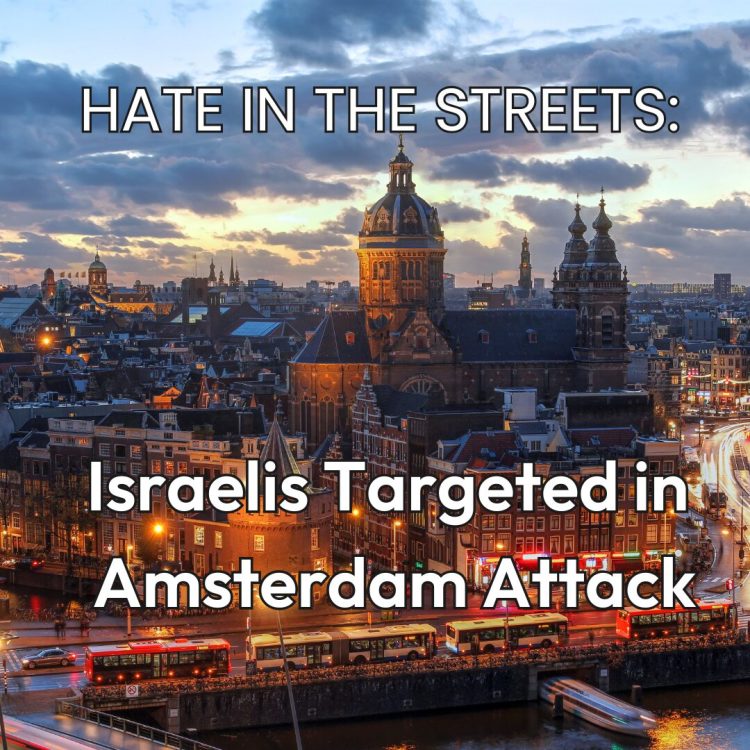The events in Amsterdam last night (November 7, 2024) sent shockwaves through Jewish and Israeli communities worldwide. Israeli soccer fans, there to cheer for their team against Ajax Amsterdam, were brutally attacked by a mob of pro-Palestinian demonstrators in what can only be described as a premeditated act of violence.
The attackers hurled stones, firecrackers, and insults, leaving fans injured and terrified. This wasn’t random—it was a blatant display of antisemitism in one of Europe’s major cities. Sad but not surprised, I went to bed after watching live coverage on Israeli news channels, deeply worried for the safety of hundreds of Israelis—including a family member who, thankfully, managed to escape unharmed.
Major international outlets were slow to report, and when they did, some framed the story to almost blame the victims—insinuating that the Israeli fans were somehow responsible for being attacked.
Pro-Palestinian demonstrators turned violent, targeting Israelis in what felt like a modern-day pogrom. While shocking, it’s not surprising. Across Europe, antisemitic aggression and anti-Israel sentiment have been escalating, with authorities unwilling—or unable—to respond effectively.
This isn’t an isolated incident. Just a few months ago, during the inauguration of Amsterdam’s Holocaust Museum, anti-Israel protesters gathered outside, even as people inside commemorated the atrocities of the past. Shortly after, violent clashes broke out at the University of Amsterdam when police attempted to dismantle an anti-Israel protest camp. Time and again, protests escalate into violence when left unchecked.
Jewish and Israeli communities in the Netherlands have repeatedly raised alarms about the growing boldness of radical groups. There is clear evidence linking some of these factions to Hamas, yet enforcement remains weak, and penalties are almost nonexistent. The result? A green light for further aggression.
These events aren’t just attacks on Jewish or Israeli communities—they’re a warning to anyone who values safety and freedom. When governments fail to protect their citizens, the responsibility falls to the individual.
This is why self-defense is no longer optional—it’s essential. Krav Maga isn’t just about learning to fight; it’s about building awareness, preparedness, and the ability to respond effectively when it matters most. With violence on the rise, the skills gained through training can make the difference between panic and control, fear and confidence, or harm and safety.
To be clear, I don’t believe that one or two years of training would be enough to handle a large, hostile, armed crowd. But it could give you the tools to make better decisions under pressure—potentially saving your life or even someone else’s.
Now more than ever, being ready isn’t a choice—it’s a necessity.
At Krav Maga Experts, we teach more than techniques. We teach people how to protect what they love, even in the most volatile circumstances. Whether it’s walking home alone, riding the subway, or standing against an angry mob, our training equips you to handle the unexpected.



